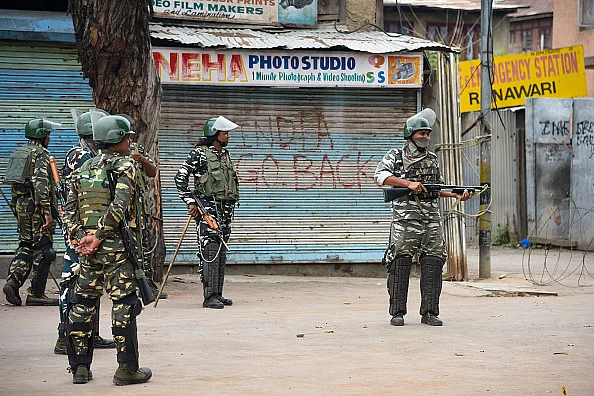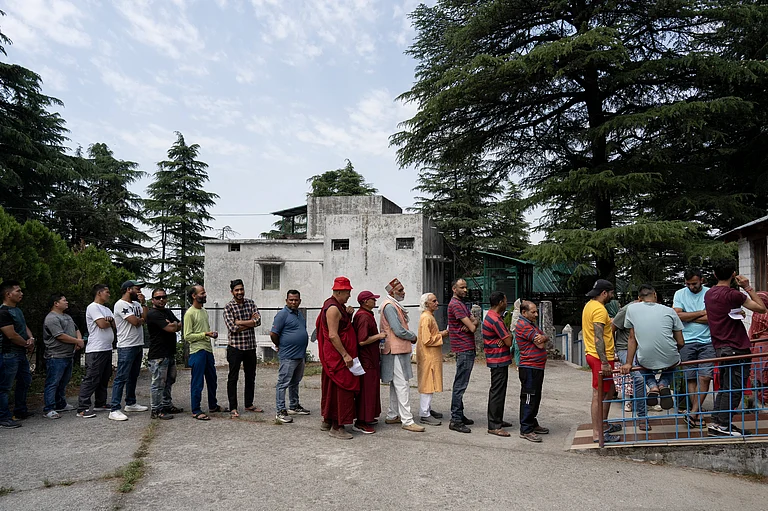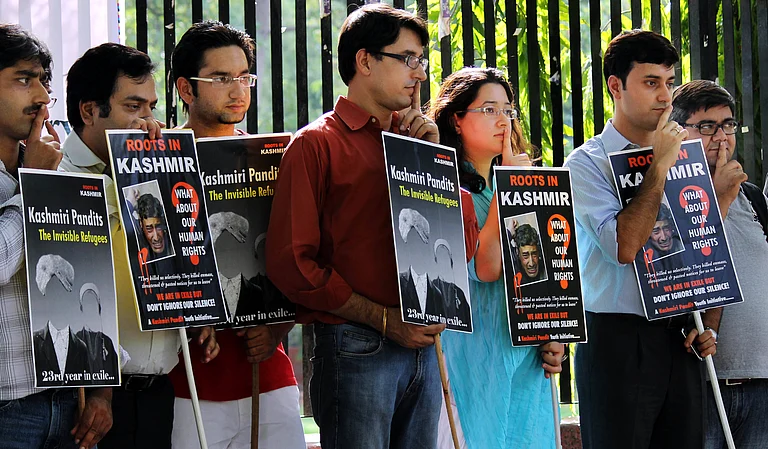The political tapestry of Jammu and Kashmir represents one of the most intricate and contentious arenas in modern Indian polity. The abrogation of Articles 370 and 35A in August 2019 and the implementation of Jammu and Kashmir Reorganisation Act, which rescinded the region's semi-autonomous status and reconstituted the state into two Union Territories—Jammu and Kashmir, and Ladakh—ushered in a paradigm shift of monumental proportions. While the practice of bifurcating and delineating new states in India has been historically prevalent, the unprecedented reclassification of a former state to the status of a Union Territory signifies an exceptional deviation from established administrative conventions.
In Kashmir, the Indian state exists in a kind of sadomasochistic relationship that pins down an entire population to perpetuate its power. Since August 2019, the government has embarked on a mission to perpetuate drastic changes in the predominantly Muslim majority region. The policies that the Indian government has been implementing since the abrogation of Jammu and Kashmir’s autonomous status will bring tectonic shifts in the Kashmiri society. The demotion of J-K from a state with a so-called ‘special status’ to now a union territory directly controlled by the BJP-led government in New Delhi, through its appointed Lieutenant Governor, disintegrates J-K legislature’s autonomy awarded-to it through the Article 370 of the Indian Constitution.
The Jammu and Kashmir Reorganisation order 2019 disempowers the state legislature of J-K from defining "permanent residents" and their rights, as was guaranteed under Article 35A. The August 2019 lockdown plunged the state into a sharp downward spiral. By December 2019, the economy of the valley was in dire straits. In four months of the lockdown, Jammu and Kashmir’s industries suffered a loss of Rs 17,878.18 crore (roughly US $ 2.4 billion), while job losses were just under half a million (497,000). The Kashmir Chamber of Commerce and Industry (KCCI), in a recent report, put economic losses in the Kashmir Valley in the last year at Rs 40,000 crore. It means losing about 11 per cent of Jammu and Kashmir’s economic output.
In the guise of an imposed normalcy, a profound ire festers within the Kashmiri populace, who perceive the abrogation of the region's semi-autonomous status as an egregious affront to their identity and an insidious act of political expropriation. This legislative manoeuvre, executed with imperious disregard for local sentiment, has engendered a pervasive sense of disenfranchisement and existential threat among the inhabitants. The annulment of Article 370, far from quelling unrest, has exacerbated the chasm between the central authority and the Kashmiri people, who view this intervention as a deleterious encroachment on their historical and cultural sovereignty. Consequently, the region remains embroiled in a state of latent turmoil, as the spectre of unacknowledged grievances and thwarted aspirations continues to loom ominously over its socio-political landscape.
The reconstitution of the erstwhile state into a centrally administered territory has precipitated a profound security conundrum in the Jammu region, a locale that had hitherto enjoyed a protracted period of tranquility exceeding a decade.
According to official figures, 29 militant-related violent incidents have taken place in the Jammu region since 2021, with an increase in civilian casualties. The total number of deaths was 12 in 2023 compared to 17 in the first six months of 2024 in Jammu alone. The recent spate of militant incursions and the concomitant exacerbation of security vulnerabilities underscore a disconcerting paradigm shift, rendering the region increasingly susceptible to exogenous manipulation and subversive machinations. This newfound volatility is emblematic of an intricate interplay between geopolitical stratagems and localised disaffection, which has inexorably eroded the erstwhile semblance of stability.
Politics, in its quintessence, epitomises the intricate interplay of power dynamics, ideological contestations, and institutional frameworks that underpin societal governance. It represents not merely a realm of partisan maneuverings but a crucible wherein divergent interests converge, where policy formulations and decision-making processes intersect with the aspirations and grievances of diverse constituencies.
In Jammu and Kashmir, the paradigm of politics is starkly antithetical to its conventional connotations, manifesting as a domain fraught with paradoxes and repressive undertones. Here, politics transcends the archetypal engagement in democratic processes and the articulation of civic will; instead, it is marred by a pervasive milieu of political inertia and disenfranchisement. This aberration from normative political praxis not only stifles the electorate's agency but also perpetuates a climate of subdued dissent and institutional apathy. Consequently, the political landscape of Jammu and Kashmir is emblematic of a disquieting departure from the foundational tenets of democratic engagement, ensconced in a reality where the exercise of political rights and the very discourse of governance are subsumed by a prevailing ethos of silenced subjugation and normative stagnation. Even if assembly elections will be held this year, as directed by the Supreme Court, the new assembly will be powerless because a recent amendment of the Reorganisation Act have increased the executive powers of the Lieutenant Governor.
The Reorganisation Act, a legislative measure designed to streamline administrative processes, is poised to have profound implications on the forthcoming elections in the restive region. This statute, through its structural recalibration of local governance, may precipitate a shift in the electorate's alignment by altering the foundational dynamics of political engagement. The Act's emphasis on centralisation and efficiency could either mollify or exacerbate existing tensions, contingent upon the populace's perception of its legitimacy and efficacy.
Consequently, political entities must recalibrate their strategies to navigate the evolving landscape, wherein the redefined parameters of authority and accountability will inevitably influence voter behaviour and electoral outcomes. Delimitation redraws constituency boundaries based on population changes, which can alter the demographic composition of constituencies. In Jammu and Kashmir, this has been a contentious issue due to demographic diversity and political sensitivities. It can impact the political balance by potentially altering the number of seats held by different regions or communities. In a region like Jammu and Kashmir with diverse demographics, this can influence political power dynamics.
The recent electoral defeat of the two former Chief Ministers can be attributed primarily to the ramifications of the recently concluded delimitation exercise. This complex and contentious process, characterised by its intricate and often opaque recalibration of electoral boundaries, has engendered a significant redistribution of voter demographics. Consequently, the erstwhile strongholds of these political stalwarts were disrupted, diluting their hitherto unassailable influence. The resultant shift in constituency boundaries, designed ostensibly to ensure equitable representation, paradoxically precipitated their political downfall by altering the electoral landscape in a manner that rendered their previously secure voter base precarious and fragmented.
In a place where the omnipresent grasp of a central government permeates every facet of existence, the reestablishment of public trust in centralized authority necessitates a bona fide political metamorphosis. The conspicuous absence of an elected legislature since June 2018 encapsulates a pervasive ethos where the very articulation, contemplation, or engagement with political discourse is anathema to the prevailing norms. The quintessential catalyst for such a transformation resides in the orchestration of an election that epitomises the virtues of liberty, equity, and democratic ethos. This electoral process must transcend mere formalities, embodying a sacrosanct endeavour that reinvigorates civic faith and reinstitutes the foundational principles of self-governance. Only through the sanctified mechanism of a truly free and fair electoral process can the polity embark upon a path of genuine political renaissance, thereby ameliorating the pervasive cynicism that currently besmirches the social contract.
Bilal Gani is a Political Researcher and a Literary Critic.




























